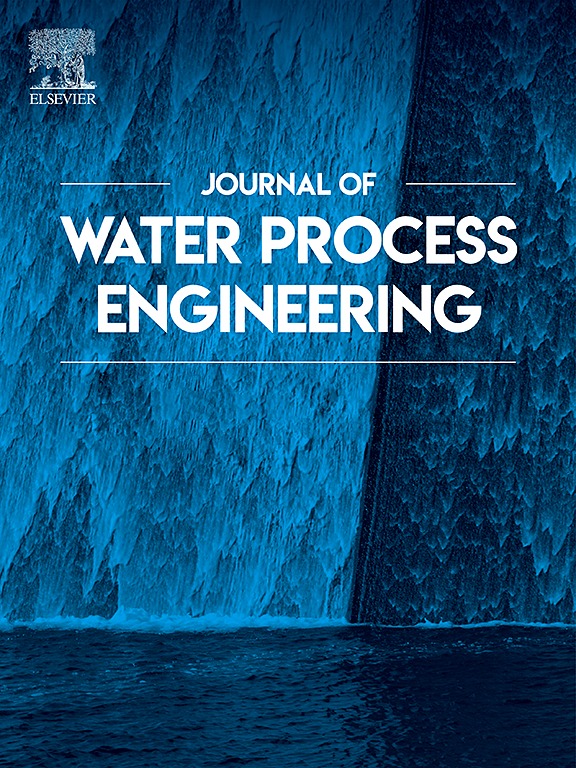使用原型、暹罗和匹配网络的少量学习来评估地下水质量
IF 6.3
2区 工程技术
Q1 ENGINEERING, CHEMICAL
引用次数: 0
摘要
地下水质量评估对于可持续水资源管理至关重要,特别是在阿尔及利亚Adrar等极度干旱地区,数据匮乏和环境挑战阻碍了传统的监测方法。本研究探讨了三种Few-Shot Learning (FSL)算法:Prototypical Networks、Siamese Networks和Matching Networks在有限数据集地下水质量分类中的应用。该数据集包括来自Adrar地区的166个地下水样本,分为五个质量等级:“优秀”、“非常好”、“良好”、“满意”和“不满意”。结果表明,Prototypical Networks优于其他FSL算法,在每类10个支持样本的情况下达到93%的准确率,而Siamese和Matching Networks分别达到90%和88%的准确率。该研究强调了FSL在解决数据稀缺问题方面的潜力,为数据稀缺地区的地下水质量评估提供了一种经济有效的方法。研究结果强调了FSL在补充传统方法方面的重要性,特别是在数据收集具有挑战性的超干旱地区。本文章由计算机程序翻译,如有差异,请以英文原文为准。
Groundwater quality assessment using few-shot learning with prototypical, Siamese, and matching networks
Groundwater quality assessment is critical for sustainable water resource management, especially in hyperarid regions like Adrar, Algeria, where data scarcity and environmental challenges hinder traditional monitoring methods. This study explores the application of three Few-Shot Learning (FSL) algorithms: Prototypical Networks, Siamese Networks, and Matching Networks, for groundwater quality classification using limited datasets. The dataset comprises 166 groundwater samples from the Adrar region, characterized by five quality classes: “Excellent,” “Very Good,” “Good,” “Satisfactory,” and “Unsatisfactory.” Results demonstrate that Prototypical Networks outperform other FSL algorithms, achieving 93 % accuracy with 10 support samples per class, while Siamese and Matching Networks achieve 90 % and 88 % accuracy, respectively. The study highlights the potential of FSL in addressing data scarcity, offering a cost-effective and efficient approach for groundwater quality assessment in data-scarce regions. The findings underscore the importance of FSL in complementing traditional methods, particularly in hyper arid areas where data collection is challenging.
求助全文
通过发布文献求助,成功后即可免费获取论文全文。
去求助
来源期刊

Journal of water process engineering
Biochemistry, Genetics and Molecular Biology-Biotechnology
CiteScore
10.70
自引率
8.60%
发文量
846
审稿时长
24 days
期刊介绍:
The Journal of Water Process Engineering aims to publish refereed, high-quality research papers with significant novelty and impact in all areas of the engineering of water and wastewater processing . Papers on advanced and novel treatment processes and technologies are particularly welcome. The Journal considers papers in areas such as nanotechnology and biotechnology applications in water, novel oxidation and separation processes, membrane processes (except those for desalination) , catalytic processes for the removal of water contaminants, sustainable processes, water reuse and recycling, water use and wastewater minimization, integrated/hybrid technology, process modeling of water treatment and novel treatment processes. Submissions on the subject of adsorbents, including standard measurements of adsorption kinetics and equilibrium will only be considered if there is a genuine case for novelty and contribution, for example highly novel, sustainable adsorbents and their use: papers on activated carbon-type materials derived from natural matter, or surfactant-modified clays and related minerals, would not fulfil this criterion. The Journal particularly welcomes contributions involving environmentally, economically and socially sustainable technology for water treatment, including those which are energy-efficient, with minimal or no chemical consumption, and capable of water recycling and reuse that minimizes the direct disposal of wastewater to the aquatic environment. Papers that describe novel ideas for solving issues related to water quality and availability are also welcome, as are those that show the transfer of techniques from other disciplines. The Journal will consider papers dealing with processes for various water matrices including drinking water (except desalination), domestic, urban and industrial wastewaters, in addition to their residues. It is expected that the journal will be of particular relevance to chemical and process engineers working in the field. The Journal welcomes Full Text papers, Short Communications, State-of-the-Art Reviews and Letters to Editors and Case Studies
 求助内容:
求助内容: 应助结果提醒方式:
应助结果提醒方式:


